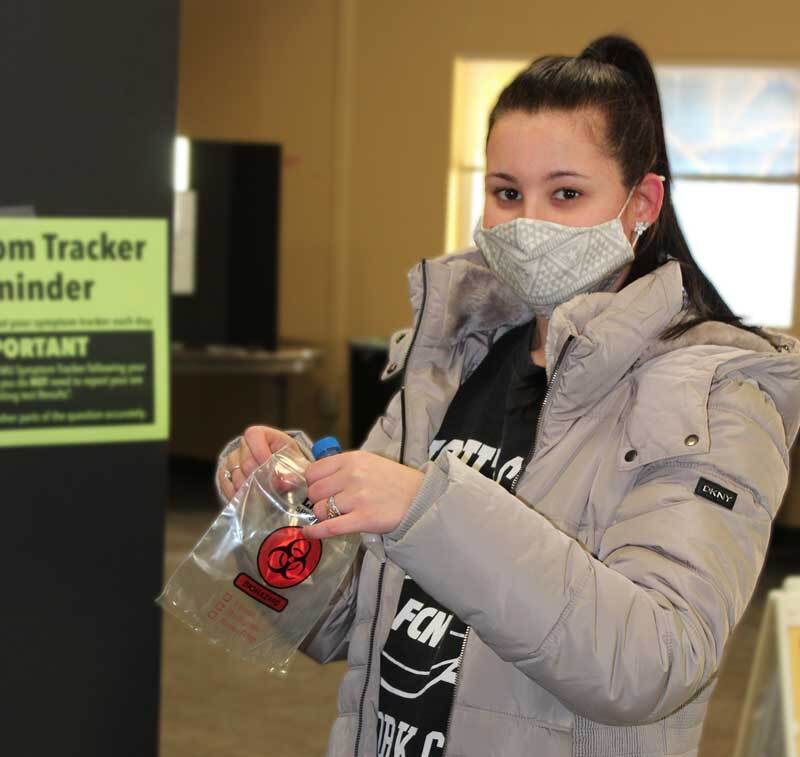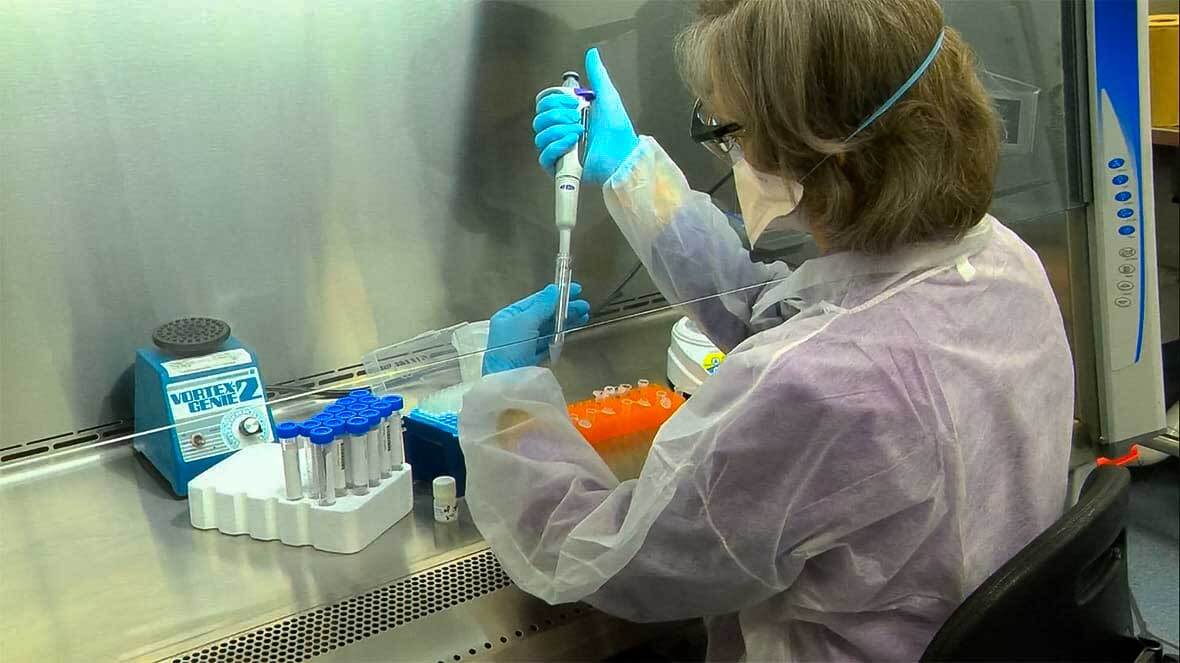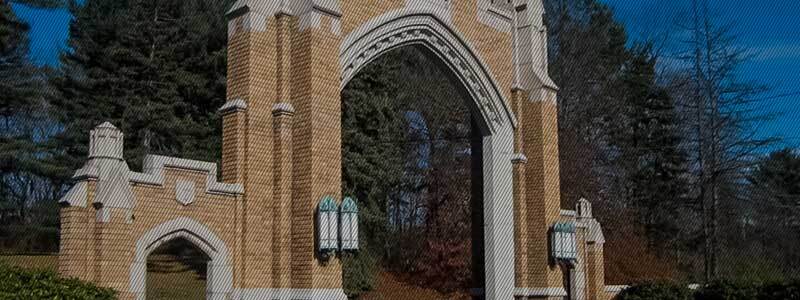Testing Misericordia University Students & Athletes
Chai’s saliva-based COVID-19 Surveillance Solution is helping keep a campus 100% open for in-person instruction and sports, one test at a time.
Misericordia University, home of the Cougars, is a National Collegiate Athletic Association (NCAA) Division III school located in Pennsylvania. Students and teachers were looking to reopen safely and bring back in-person learning, a key component for quality education. “From the standpoint of a staff member here in the sciences, I can’t emphasize how important it is to have students in the lab, in the chemistry department, in the biology department. It’s difficult trying to understand anatomy and physiology with a cam at home, or watching a professor perform a dissection over Zoom,” says adjunct chemistry instructor and lab manager Leo Carr.
At Misericordia, one in three students play a sport. For student athletes to participate, the NCAA requires that student athletes be tested within 72 hours of games. During playoffs, teams may only get 24-hour notice. “Getting results quickly and not having to wait a couple days was critical for our sports teams. Our team may come up and need to be tested. We can make that happen now,” says Eve Schwartz, head of the COVID-19 Surveillance Testing Lab at Misericordia. With the COVID-19 Surveillance Solution, the university’s student lab technicians have enough time to collect samples, run the test, and identify positives prior to games.
Beyond the sports teams, the rapid turnaround has enabled early identification of asymptomatic positives within the student population. This has helped the Cougar Care Team, that performs on-campus contact tracing, isolate infectious individuals sooner to slow the spread. “You’re catching positives faster, so you’re definitely keeping your university student body and staff safe,” says Schwartz.
The Testing Strategy
Around 500 students, or 20% of the student population, are randomly selected for testing each week. Students are notified via email and sign up for an appointment to provide a saliva sample. On the day of, they proceed to the student lounge, where stations have been set-up with clear instructions.

The samples are processed by students working in the lab. In the case of a presumptive positive, the person is contacted by the Cougar Care Team and referred to the Campus Health Center for further diagnostic testing. The testing has enabled Misericordia to function completely on-site and maintain a safe campus environment in which to work and learn.
The university has recently gone from testing 50% to 100% of athletes across all sports. The saliva-based surveillance program has been easy for athletic directors to adopt and integrate into their game schedule. “We’ve trained coaches on the sampling method, who oversee the sample procedure and then routinely drop the tubes off at the lab. It’s like a well-oiled machine,” says Schwartz. “The saliva test beats the nasal swab any day. Our students, faculty, and staff can attest to that as well,” added Carr. Misericordia University has been so successful that they are now testing other local universities’ sports teams.
Inspiring the Next Generation

Schwartz is currently leading a team of three student lab technicians, who process all of the university’s saliva samples. ”I didn’t have experience with PCR and was surprised at how well it worked. The runs went nicely every time. Our students are able to do this test from beginning to completion,” says Schwartz. The students feel rewarded; supporting an effort to mitigate the effects of the pandemic and running tests that have real-world impact.
“Each one of them will tell you it’s the highlight of their day to perform the lab work,” says Schwartz. These students are now interested in becoming clinical lab scientists. “We’ve always been focused on student-based research. The opportunity that’s given to students is really priceless. The student lab technicians feel like they’re making a difference. This is also going to look great on their resumes for graduate school or the workforce,” says Carr.
Post-COVID, the Open qPCR will continue to provide opportunities for other students to design their own experiments and run PCR. The staff is planning on incorporating the instrument into the molecular biology curriculum and lab.
The university has already run 5,500 tests in-house. “Surveillance has really paid off. We had some rapid antigen tests, but of course the accuracy and error rate is high there. Another RT-PCR solution we were looking at had all the bells and whistles, but we weren’t a CLIA-certified laboratory. Our percent positive was 0.36% this past week,” says Carr.
Instituting this testing program has really helped us. It’s been a silver lining and a solution to a major problem.
“We were hit hard by the pandemic initially,” says Carr. “Like most small universities and colleges, it affected the budget. Sending students home obviously affects the bottom line. We didn’t know what to expect for the summer. We didn’t know what to expect for the fall. Instituting this testing program has really helped us. It’s been a silver lining and a solution to a major problem.”
Learn More
Designing a COVID-19 Surveillance Testing Program: how to maintain the safety of on-site activities and reduce viral transmission by detecting asymptomatic infections early.
Taking Back Control: a Resetting of America’s Response to COVID-19: a Rockefeller Foundation report that highlights the importance of surveillance testing in schools and the overall need for ramping up testing in the midst of vaccinations.
